Panelists discussed the importance of modern-day treaty rights affirmation and implementation to tribal communities. Highlighted was the importance of treaty rights, their vital role in the tribal communities, the inter-generational transfer of knowledge, and the establishment of tribal court systems through the reaffirmation of tribal sovereignty. Through increased tribal empowerment in the development of tribal courts, progress has been made in developing more positive relationships between tribes and federal, state and local agencies.
 |
Moderator: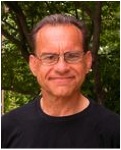
Larry Nesper |
Larry Nesper has been Associate Professor of Anthropology and American Indian Studies at the University of Wisconsin-Madison since 2002. He is author of “The Walleye War: The Struggle for Spearfishing and Treaty Rights” (University of Nebraska, 2002), a refined version of his dissertation done at the University of Chicago between 1989 and 1994. Nesper is an author of nearly twenty journal articles and book chapters, many of which have to do with the tribes of Wisconsin. An occasional consultant to GLIFWC, he is also co-author with Charles Cleland in 1994 of “The Potential Cultural Impact of the Development of the Crandon Mine on the Indian Communities of Northeastern Wisconsin;” with James McClurken in 1997 of “Cultural and Economic Importance of Natural Resources In the Vicinity of the White Pine Mine To The Lake Superior Ojibwa;” with Anna Willow and Thomas King in 2002 of “The Mushgigagamongsebe District: A Traditional Cultural Landscape of the Sokaogon Ojibwe Community;” and with Anna Willow in 2008 of “Big Lake and Rice Creek: A Traditional Cultural Property Analysis."
“I've always believed that the recognition of the treaty rights was an extremely significant change in how the tribal communities think about themselves. I think this is a watershed moment in the history of the tribes in this area as well as the history of tribes across the continent.
The recognition of the treaty rights by the federal courts is a more powerful affirmation of Indian sovereignty than the progression of legislation of the self-determination era, such as: Indian Self-determination Act, the Indian Child Welfare Act, Native American Graves Repatriation Act and the Indian Gaming Regulatory Act.”
 full speech full speech
|
 Conference Paper Conference Paper
|
 |
Panelists: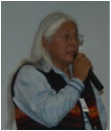
Dwight "bucko" Teeple
 Watch now Watch now
|
Dwight "Bucko" Teeple, is a member of the Bay Mills Indian Community. He is a former Director of MICWA (Michigan Indian Child Welfare Agency) and the American Indian Business Development Consortium, Bucko has been actively involved in treaty issues for the 1836 Treaty since 1971 and was the first tribal member to successfully complete an elk hunt under that Treaty.
“When I worked with Pendalls Creek in 1968, I went to help to plant those lake trout, and you can imagine they mature about six or seven years and come for spawning, so in '73 and '74, that was that maturing age for those lake trout. My knowledge of working at the hatchery and knowing where they were planted gave me a heads up to where they might be coming back in, which break walls and which boat launches, so that's where we'd go. Oftentimes, we wouldn't even have to use the boat to set, just walk the nets out. You could feel the fish bumping off your legs, sometimes, the bullets splashing around you. The fish wars or beach wars, for us, were more dangerous than being in the Army. Oftentimes, we had to face crowds on the beaches of 100 or 200 people coming into landings like at Grand Marais.”
 full speech full speech
|
|
 |
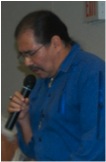
Alton "Sonny" Smart
 Watch now Watch now
|
Alton “Sonny” Smart is a member of the Bad River Band of the Lake Superior Tribe of Chippewa Indians, where he was born into the Fish Clan. His spiritual names are Ozaawaanikwad and later a Menominee tribal name of Notnowgiishick, when he was adopted into the Menominee tribe. He holds positions on Ojibwe ceremonial Big Drum and Midewiwin Medicine Societies. Since 1985, Smart has served as the judge for the Bad River Tribal Court, where he currently is the Chief Associate Judge. He holds a PhD in Sociology and, since 1990, has been a Professor of Social Work at the University of Wisconsin-Stevens Point where he coordinates the Native American Rural & Social Work program, the Native American Family Institute, and teaches courses in Native American social work, child welfare, problems in family interaction and other social work. Smart also has worked for various Wisconsin tribes in many capacities, including clinical social worker, director of alcohol and drug prevention, in-home family therapist, director of family and counseling services, high school guidance counselor, school cultural specialist, health careers recruiter. Smart is a veteran, serving in the United States Army Airborne as field medic in Vietnam and Germany.
“In the last 25 years, I've seen the Court evolve a lot of different settings, specifically here on Bad River. I've seen it evolve and I’ve seen how the community has looked at it and also other tribal communities have seen how it has evolved… The courts have taken on more responsibilities and that has to do with our growth and how we feel about ourselves and our ability to do things on our own. It also has to do with our ability to be able to make our own decisions without having the surrogate parent come in with the Bureau of Indian Affairs to run our affairs. Basically, we can do this ourselves. Tribes basically can make their own determination about where they're going to go and what they're going to do.”
 full speech full speech
|
|
 |
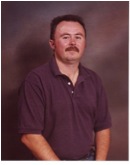
Mark Duffy
|
Mark Duffy, a member of the Red Cliff Band of Lake Superior Chippewa Indians, comes from a family with a long history of fishing in Lake Superior and exercising treaty rights. He has been a Conservation Officer for the Red Cliff Tribal Natural Resources Department since 1985, is a former member of the Red Cliff Tribal Council, and has served as one of Red Cliff’s representatives to GLIFWC’s Voigt Intertribal Task Force since 1986.
“Today, the tribes have their own experts, their own hatcheries, their own regulations, their own law enforcement, and their own court systems to collectively regulate, monitor, and protect our natural resources for the generations to come. Because of these rights, tribal members are able to bring home natural foods and make a meager income from such things as maple syrup, wild rice, fish, crafts, boughs and other natural products out there. We could go on a long time about what this means today. Children today have not lived like those of generations past, but these stories need to be told. These stories need to be put down in writing so the next generation knows what happened previously.”
 full speech full speech
|
|
 |

Dee Ann Mayo
 Watch now Watch now
|
Dee Ann Mayo, a member of the Lac du Flambeau Band, has been on the Lac du Flambeau Council for the past 7 years, serving as the Council's vice-president for the past 5 years. She has worked for the tribe's Natural Resource Department for over 15 years, working in the Fish Hatchery, in the Water Resources Department and presently is an Environmental Specialist. Mayo is a regular participant in the exercise of treaty hunting and fishing rights, including the time of the boat landing protests in Wisconsin in the 1980's.
“It has always been my foundation, and our community's strength, that we rely on our treaties, our treaty resources and the exercise of those rights. It's a strong basis of our Lac du Flambeau community and tribe. Through this whole time, we saw the obstacles before us. Our community really stepped in. Even when I was in high school, our tribal government made sure that we were all safe. They stepped in even when those teachers were talking that way and were pushing things. They made sure our kids would at least get the essential education that is owed to them.”
 full speech full speech
|
|
 |
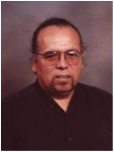
Jim St. Arnold
 Watch now Watch now
|
Jim St. Arnold, is a former Tribal Council Member and Chairman of the Keweenaw Bay Indian Community, and has worked as a Program Director for GLIFWC since 1988. Jim has lectured throughout the Midwest regarding treaty rights and tribal resource management programs. Recent projects have included working with elders from the GLIFWC 11 member tribes to discuss non-medicinal uses of plants, and development of two language CDs using the resources and harvests as tools to teach the Anishinaabe language.
“Minwaajimo is a good title for this, because we've all got our story, but as was pointed out [this morning] the pieces of the puzzle are all starting to fall together and when you listen to them, you can start to hear. And the younger people that are here, they can start to see and feel what was going on 30 and 20 years ago and when they go out spearing fish or hunting tonight, they can realize that I didn't have that opportunity and my father didn't have that opportunity. When my father went out hunting or fishing off the reservation, he was poaching. When my father and my grandfather and my uncles were all hunting and fishing off the reservation, they were in danger of getting jail time because they wanted to feed their family. And our children don't have that worry right now.”
 full speech full speech
|
|
| |
|
|









